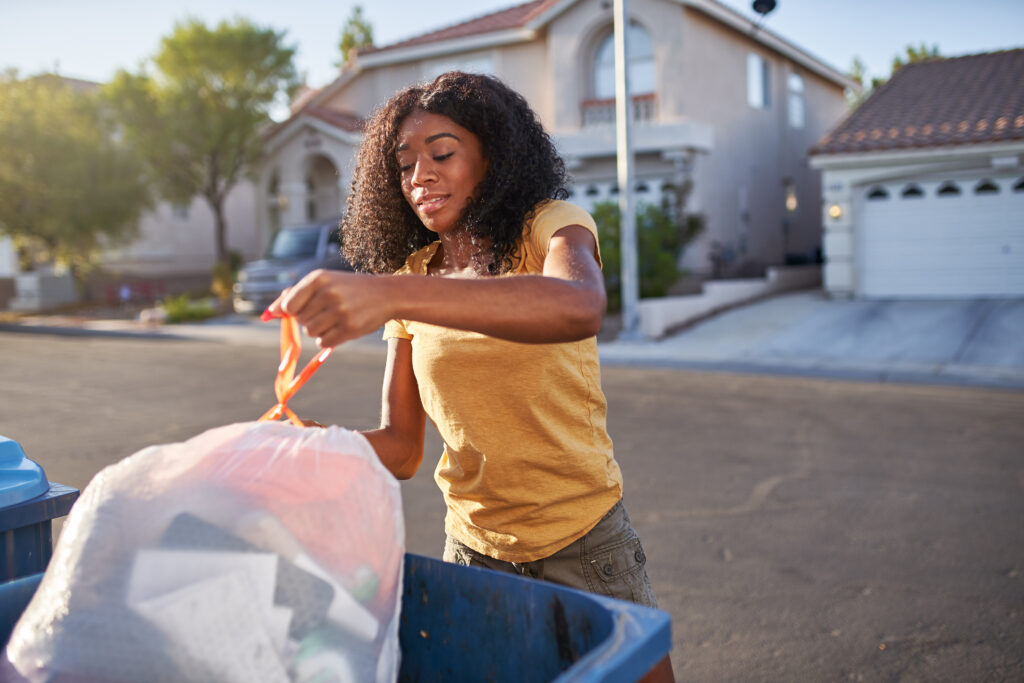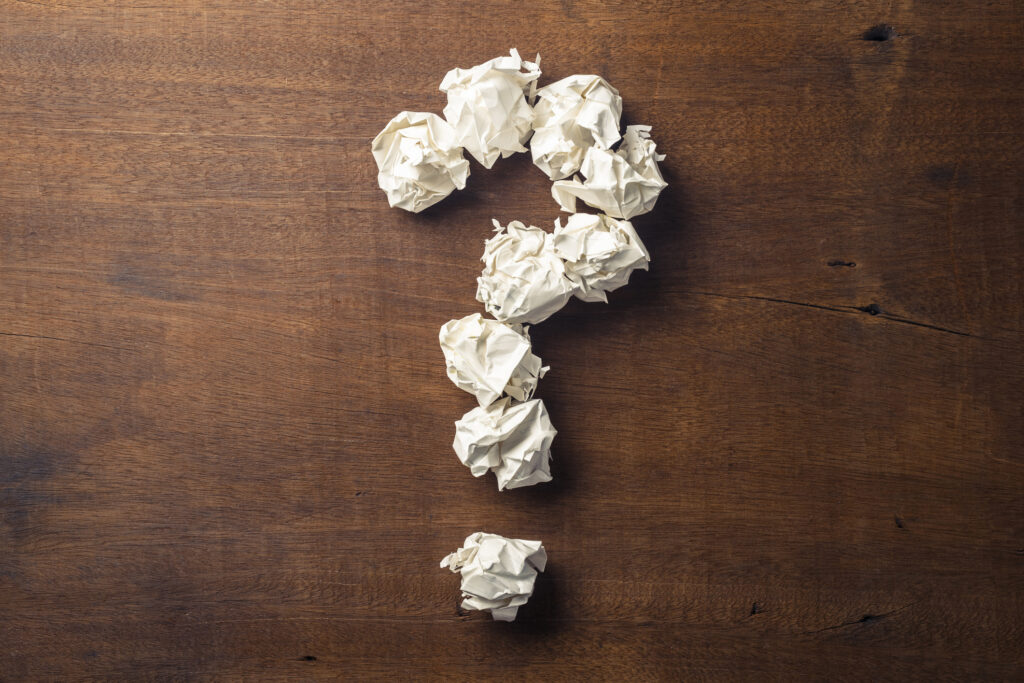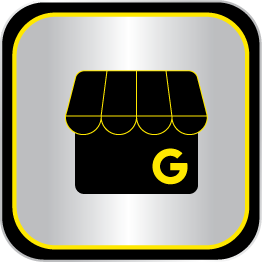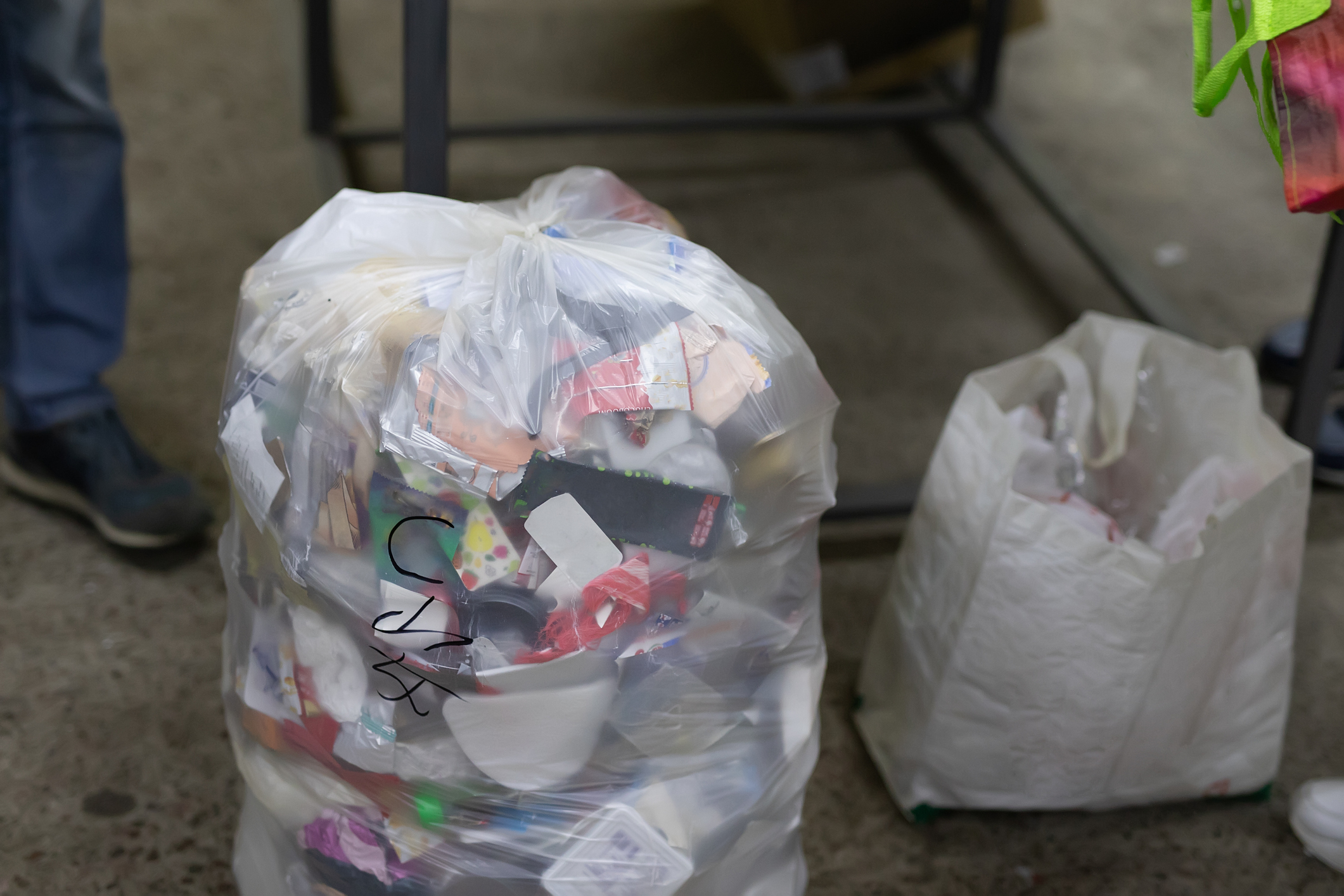Non-recyclable junk includes things like greasy pizza boxes, plastic-coated items, and hazardous waste like batteries. These can mess up recycling or need special disposal. Knowing how to handle them helps protect the environment and manage waste better. Choose reusable or recyclable options to cut down on non-recyclable trash.
What Is Non-Recyclable Junk?
Ever think about why some items can’t go in the recycling bin, even if they seem recyclable?
The reason is simple: not all materials can be processed easily in regular recycling programs. Non-recyclable junk includes materials that disrupt the recycling process or require specialized care for safe disposal.
Take greasy pizza boxes, for example. The oil from the cheese and toppings soaks into the cardboard, rendering it useless for recycling.
Another example is plastic-coated paper cups. They might appear recyclable, but the thin plastic layer makes it difficult for most facilities to process them.
Then there’s hazardous waste like batteries and electronics. These items contain dangerous chemicals like lead or mercury that can harm both the planet and people if not properly disposed of. They require special handling to ensure safety.
Even everyday items like plastic grocery bags are problematic. These can’t go into curbside bins because they jam sorting machines. Instead of aiding waste management, these items create additional challenges for recycling facilities.
Understanding what can’t be recycled is critical for maintaining a clean and safe environment in Honolulu, HI.
If you’re looking for expert help in managing your junk responsibly, Aloha Junkman offers sustainable and professional junk removal services.

Examples of Non-Recyclable Junk
Not all trash belongs in the recycling bin.
Knowing what counts as non-recyclable junk helps protect the environment and keeps Honolulu’s waste system running efficiently.
Hazardous items like batteries, old paint cans, and household chemicals are clear examples. These contain harmful materials and need special handling for safe disposal.
Items like greasy pizza boxes or plastic-coated materials might look recyclable, but they’re not.
Food stains and coatings make them unsuitable for recycling because they compromise the quality of recycled materials.
Things like plastic bags and wire hangers also create challenges. Plastic bags can clog sorting machines, and the mix of metals and coatings on hangers makes them difficult to recycle.
Other unexpected non-recyclables include styrofoam, which is tough to process due to its light and brittle nature, and used napkins or paper towels if they’re dirty from food or cleaning products.
Being mindful of trash sorting is essential for properly managing waste in Honolulu, HI, and avoiding issues in the overall waste system.
Everyday Items People Mistake for Recyclable
Many things around the house may seem recyclable, but tossing the wrong stuff in the bin can cause big problems for recycling centers—or even harm the environment.
For example, plastic food containers without recycling symbols might look recyclable, but they often aren’t because of the materials they’re made from. Without clear labels, these items can end up in the wrong place and mess up the recycling process.
Another tricky item is brightly dyed or laminated paper. Regular paper is fine to recycle, but heavy dyes and lamination make it hard to process. Most recycling systems can’t handle these materials, so they’re treated as non-recyclable junk.
Juice boxes and coated drink containers are another common misunderstanding. Their plastic or waxy coatings are great for keeping liquids fresh but make recycling nearly impossible. Even if they’re broken down, the mix of materials creates issues for standard recycling methods.
Knowing what can and can’t be recycled is key to keeping Honolulu’s recycling program running smoothly.
If you’re not sure whether something is recyclable, check with your local waste service or turn to experts like Aloha Junkman in Honolulu, HI, for professional advice on sorting and disposing of your items properly.
Why Disposing of Non-Recyclable Junk the Right Way Matters
Throwing away non-recyclable junk the wrong way can cause big problems, especially in a place like Honolulu, HI.
When items like plastic bags or styrofoam end up in the ocean, they harm marine life and disrupt ecosystems that are key to the island’s health.
It’s not just nature at risk—things like batteries or electronics tossed in the trash can release toxic chemicals like lead and mercury into the soil and water, causing long-term damage.
Improper disposal also harms local recycling programs.
Contaminated materials like greasy pizza boxes or plastic-coated items can ruin entire batches of recycling, forcing them into landfills instead.
Plastic bags, for instance, can jam machinery at recycling facilities, leading to costly downtime.
With Honolulu’s limited landfill space, these challenges make waste management both difficult and inefficient.
Separating waste from non-recyclable junk is crucial to protecting Honolulu’s fragile environment and ensuring its recycling initiatives remain effective.
Aloha Junkman is dedicated to eco-friendly disposal efforts, helping residents maintain a clean, sustainable Hawaii.
How to Handle Non-Recyclable Junk
Getting rid of non-recyclable junk isn’t just about making life easier—it’s about protecting the environment in Honolulu, HI, and keeping things running smoothly.
The first step? Know what can’t be recycled and where it belongs.
For example, greasy pizza boxes should go in the trash because they mess up the recycling process.
Hazardous items like batteries and electronics need special care since they contain harmful substances like lead and mercury.
So, how do you handle non-recyclable junk responsibly?
Start by checking local options. Honolulu has transfer stations that take hazardous or special waste.
For items like electronics or hazardous materials, refer to local programs that provide proper drop-off points.
Ensure you follow their rules, as disposal guidelines can vary.
When sorting your trash, use labeled bins to keep everything in the right place.
For example, plastic bags shouldn’t go in recycling bins because they can clog machines. Instead, take them to retail stores that offer collection services specifically for these items.
Not sure what to do with something?
Contact Aloha Junkman in Honolulu, HI, for professional advice and reliable disposal services.
Handling junk the right way isn’t hard—it’s about making smart choices and leveraging available resources.
Ways to Cut Down on Non-Recyclable Junk
Cutting down on non-recyclable junk doesn’t require big changes—just smart choices!
Start by using reusable items like metal water bottles, cloth bags, and washable food containers.
These easy swaps cut down on single-use plastics and help the environment.
For instance, many people still rely on disposable utensils for picnics or lunch, but reusable cutlery sets are lightweight and more sustainable.
When shopping, pick items with recyclable packaging when you can.
Things like cardboard boxes, glass jars, and aluminum cans are easy to recycle in most programs.
Steer clear of items wrapped in hard-to-recycle plastic or multi-layer packaging, as they often end up in landfills.
For example, juice pouches and snack bags may not seem like a big deal, but they’re a major issue in waste systems.
Here’s another tip: fix instead of toss.
Broken tools, torn clothes, or old furniture can often be repaired.
This not only cuts down on waste but also helps save resources and lowers your environmental impact.
By making small, mindful changes like these, you help reduce non-recyclable junk in Honolulu and contribute to a greener, cleaner community.
If disposing of bulky, non-recyclable materials ever feels overwhelming, reach out to Aloha Junkman, your trusted local junk removal experts, for responsible disposal solutions.
Specialty Items: How to Handle Hazardous Junk
Getting rid of hazardous junk the right way is crucial for keeping the environment safe and following local rules in Honolulu, HI.
Items like batteries, aerosol cans, and medical waste need special care because they can leak harmful materials.
For example, batteries have things like lead and mercury in them.
Improper handling of these items can pollute the soil and water.
It’s important not to toss them in the trash—take them to appropriate drop-off centers available in your area instead.
Aerosol cans, whether empty or not, are also dangerous.
If they get punctured or heated, they could explode.
To dispose of them properly, avoid throwing them in curbside bins; reach out to a local facility in Honolulu for safe handling.
Medical waste, like sharps or unused medications, requires special care.
Sharps should be placed in puncture-proof containers and dropped off at approved locations.
Medications should not be flushed, as they can harm water ecosystems.
Instead, look for pharmacy take-back programs or other authorized options to dispose of them safely.
When dealing with non-recyclable junk, such as electronic waste like old phones or broken laptops, Hawaii law mandates recycling through certified programs.
Recycling helps keep hazardous materials out of landfills and enables valuable components like copper and gold to be reused.
Aloha Junkman can assist in responsibly managing these items, making the process easy and environmentally friendly.
The Challenges of Recycling in Honolulu, HI
Recycling in Honolulu, HI can be challenging due to the unique aspects of island living.
Being so remote, Honolulu has limited access to large recycling facilities, which are typically located on the mainland.
This means that recyclables often need to be shipped off-island, consuming a significant amount of energy and resources, or they may end up in local landfills alongside non-recyclable junk.
Another common issue is the improper sorting of recyclables.
For example, items like greasy pizza boxes, styrofoam, and plastic bags are often incorrectly placed in recycling bins.
These materials can cause issues like jamming recycling machinery, slowing down processes, or even contaminating entire batches of recyclables, leading to waste being redirected to landfills.
Improving public understanding of what is and is not recyclable is essential to overcoming this issue.
Honolulu’s sensitive ecosystem makes proper waste management even more pressing.
When trash isn’t managed properly, non-recyclable junk and plastics can impact marine life and soil health, especially with harmful materials polluting the ocean.
Collaborating with experts like Aloha Junkman, who prioritize eco-friendly disposal methods, can help tackle these challenges and keep the island clean and beautiful for generations to come.
Why Knowing What Can’t Be Recycled Matters
Knowing what isn’t recyclable can make a big difference—not just in your home but for the whole Honolulu community and the environment.
When non-recyclable items end up in recycling bins, it causes big problems.
Things like greasy pizza boxes or plastic bags can ruin the recycling process, sometimes sending entire batches of good recyclables straight to the landfill.
For homeowners in Honolulu, HI, understanding what qualifies as non-recyclable junk is key to improving waste systems.
Items like hazardous materials—such as batteries or old electronics—don’t belong in your trash or regular recycling.
These need special care because they can leak harmful substances—like mercury or lead—into the environment.
The same goes for thin plastics, like grocery bags. They might look recyclable but often jam machines at sorting centers.
By following proper waste rules, homeowners can help cut down on environmental damage and support sustainable practices in our island community.
With Aloha Junkman’s eco-friendly junk removal services, you can trust that your non-recyclable junk is handled safely and responsibly.
Aloha Junkman: Your Go-To for Junk Removal in Honolulu
Aloha Junkman makes junk removal in Honolulu easy and quick.
Whether you’re cleaning out your home, getting ready to move, or dealing with construction waste, we’ve got you covered.
What makes us stand out? We focus on eco-friendly disposal.
Non-recyclable junk can be tricky to handle.
Things like greasy pizza boxes, plastic bags, or items like batteries that require special care can be a hassle and harm the environment if not dealt with properly.
That’s where we step in.
We’ll sort your junk and make sure it gets to the right places around Honolulu, HI.
We’re experts in handling hard-to-dispose items like electronics, appliances, and bulky trash, making sure nothing ends up where it shouldn’t.
Living on an island means waste management has its challenges, and we take that seriously.
Our eco-friendly practices help keep Honolulu clean and support a sustainable future.
Need junk removal with a focus on the planet?
Call Aloha Junkman today.
We’ll handle the hard work so you can relax in a clutter-free home!

FAQs
What is non-recyclable junk?
Non-recyclable junk includes items that can’t be processed through standard recycling programs. Examples are greasy pizza boxes, plastic bags, Styrofoam, and hazardous items like batteries or electronics.
Can plastic bags be recycled in Honolulu, HI?
Plastic bags can’t usually be recycled curbside because they can mess up recycling machines. You can reuse them or take them to special drop-off spots instead.
How do I get rid of hazardous items like batteries or paint?
Hazardous items need special care to avoid harming the environment. You can contact local waste management facilities in Honolulu, HI, for guidance on safe disposal.
Why can’t dirty or greasy items like pizza boxes be recycled?
Grease and dirt mess up the recycling process by ruining the fibers. It’s better to compost these items where facilities allow or rely on a professional junk removal service for proper disposal.
What does Aloha Junkman do with non-recyclable junk?
Aloha Junkman handles non-recyclable junk by sorting items efficiently and coordinating with trusted local facilities to ensure responsible disposal.







